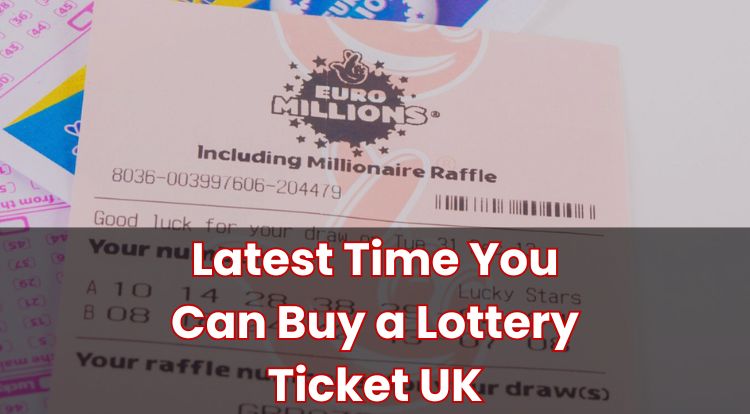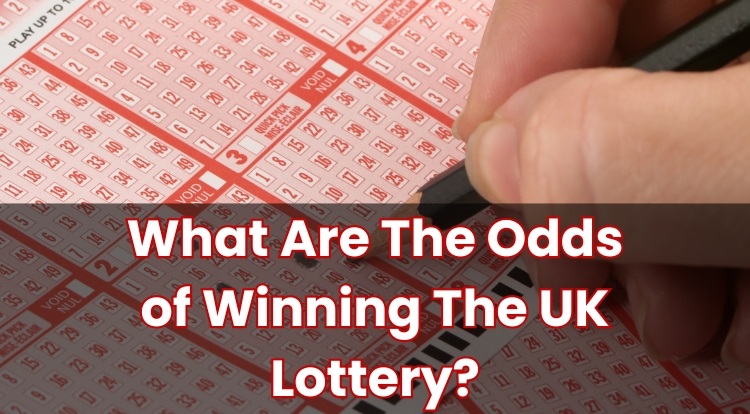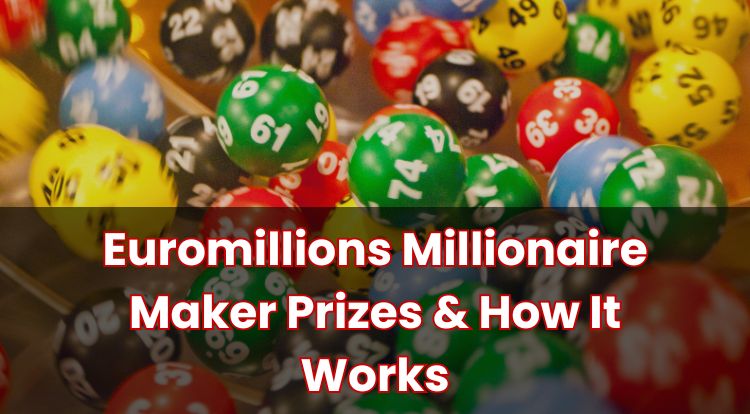How Are Winning Lottery Tickets Tracked by Stores?
Buying a lottery ticket at your local shop might seem simple, but there’s a secure system behind every ticket sold.
This blog explains how UK retailers process tickets for National Lottery games like the Lotto and EuroMillions. You’ll learn how tickets are checked after the draw, how prizes may be paid, and what happens if any potential winnings aren’t claimed.
If you’re new to playing the lottery, this guide can help make sense of how it works — from the moment you buy your ticket, to how stores handle any winning claims.
Understanding the process may help you feel more prepared if taking part in these chance-based games.
Behind the Scenes at Your Local Lottery Retailer
When you purchase a National Lottery ticket from a participating retailer in the UK, the process is more structured than it may appear. Each printed ticket includes a unique barcode that links to your chosen numbers, draw date, and payment details. This information is stored securely within the system operated by Allwyn, the current National Lottery operator since February 2024.
The lottery terminal used by retailers is connected directly to Allwyn’s central system. This ensures that your ticket details are securely stored and can be matched against the draw results after the game has taken place. The draw itself is conducted using Random Number Generators (RNGs) or physical ball machines, depending on the game, and is subject to strict oversight.
Retailers must follow specific procedures set out by the operator. These include verifying tickets, paying out certain prize amounts, and offering guidance for any higher value claims. Retailers also complete training to help ensure consistency and security when checking tickets.
Understanding Lottery Terminal Technology
Every National Lottery retailer in the UK uses a specialised terminal supplied by Allwyn. These machines are designed to both issue and scan tickets, allowing them to manage purchases and check results in real time.
When you buy a ticket, your selected numbers — or random ones if you choose a “Lucky Dip” — are entered into the system, which then prints your ticket with its identifying barcode. After the draw has taken place, this barcode can be scanned at any National Lottery retailer.
The terminal connects directly to Allwyn’s secure database, where your ticket is automatically verified. If the barcode matches a winning combination, the terminal confirms the amount and provides instructions for the retailer. These machines are encrypted and updated regularly to ensure accuracy and safety.
You can request to have your ticket scanned in front of you for full transparency. The same process is used in every licensed shop, whether you’re in a city supermarket or a village corner shop.
Do All Retailers Sell Winning Tickets?
All licensed National Lottery retailers in the UK use the same system to sell tickets. Each ticket is created at the time of purchase, whether you choose your own numbers or go for a Lucky Dip, where numbers are selected at random by the system. Either way, the outcome is not affected by how or where the ticket is bought.
Retailers can sell winning tickets, but most of these wins are likely to be for smaller possible prizes. That’s because lower-tier matches — like two or three numbers — tend to happen more often than top prizes. For instance, the odds of winning the Lotto jackpot by matching all six main numbers are around 1 in 45 million.
All lottery results are based on random draws, and no shop or ticket type can increase your chances of winning.
Store Rewards for Selling Jackpot Tickets
Under Allwyn’s current rewards scheme, National Lottery retailers who sell a ticket that wins a large prize may receive a bonus payment as recognition. This initiative is designed to acknowledge the role that local shops play in the lottery network.
For example, if a retailer sells a ticket that wins more than £1 million, they could receive a bonus of £10,000, issued directly by Allwyn. This reward does not affect the player’s prize in any way. It is a separate payment provided to the shop as part of the “Share the Win” initiative, introduced by Allwyn to support and celebrate its retail partners.
Some shops may display signs or window posters to show they’ve sold a big-winning ticket in the past, which can potentially create more interest in the local area. The bonus structure may vary over time, depending on the prize amount and any updates to Allwyn’s retailer reward policy.
The Fate of Unclaimed Lottery Prizes
If a winning ticket is not claimed within 180 days of the draw date, the prize money is no longer available to the player. Instead, it is transferred to the National Lottery Good Causes fund, where it supports local charities, arts projects, heritage organisations, and community programmes across the UK.
The claim process depends on the size of the potential prize and the game. For instance, smaller possible prizes can often be paid by the shop. Larger amounts usually require contacting Allwyn directly, or filling in a claim form. For prizes over £50,000, identity checks and an appointment with the National Lottery are typically required.
To avoid missing out, it may be worth checking your ticket as soon as possible after each draw and keeping it somewhere secure. The 180-day deadline applies across all National Lottery draw-based games, including the Lotto, Thunderball, Set For Life, and EuroMillions.
Lottery games like the Lotto and EuroMillions are based on random chance. There is no strategy that can change the outcome of a draw, and no way to influence whether a ticket will win. Some players prefer picking their own numbers, while others may choose random selections — but neither method offers an advantage.
Before taking part, you may want to check the game’s odds and prize tiers, which can differ depending on the draw. There is no single “best” lottery game — what suits one person may not suit another. If you decide to play, consider setting limits on how much you spend and treat the activity as entertainment, not a way to make money.
*All values (Bet Levels, Maximum Wins etc.) mentioned in relation to these games are subject to change at any time. Game features mentioned may not be available in some jurisdictions.
**The information provided in this blog is intended for educational purposes and should not be construed as betting advice or a guarantee of success. Always gamble responsibly.





